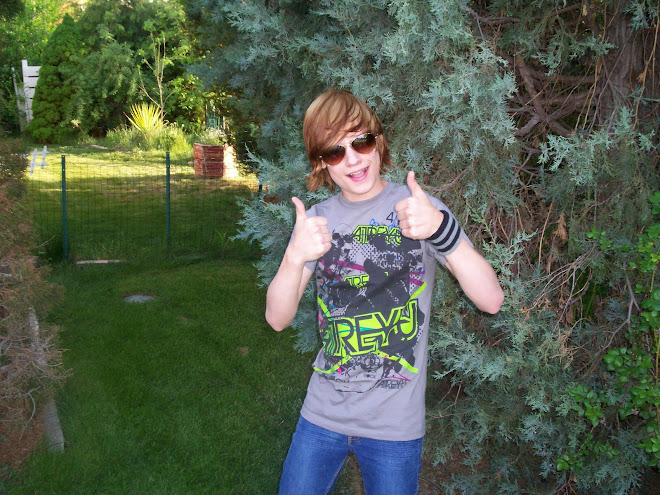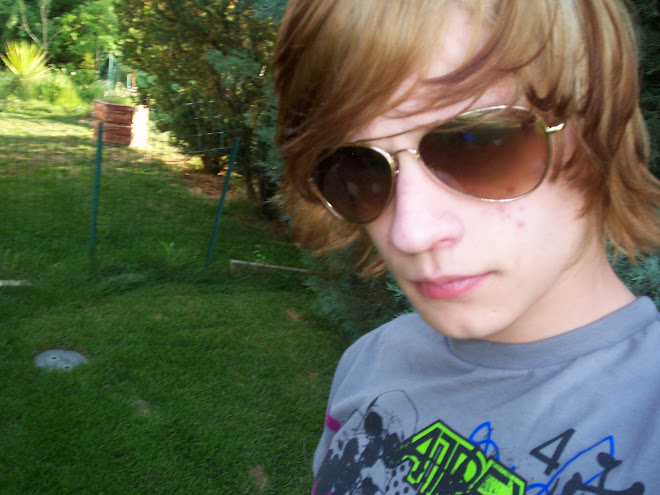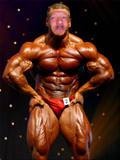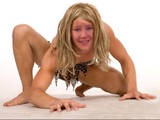Aaron Harrison
Born: 3 June 1837,
Manchester, Lancashire, England
Age: 18
Martin Handcart Company
My father and
mother, William Harrison and Hannah Louise were born in England and married in
1836. They had nine children before we
began our journey to gather with the saints, three of the children died as
infants and are buried there, in England.
Our family secured passage aboard the ship 'Horizon'. Father, Mother, myself, George (14), Mary Ann
(13), Alice (10), Joseph (6), Hannah 'Caddie' (almost 2) and Sarah Ellen (5
months). We boarded the ship in the
Liverpool harbor late in May of 1856.
After about five weeks at sea, we landed in Boston.
After all the things were ready, we
started on our journey by rail. The seats of the train were two-inch plank with
no back. Many of the younger boys in the
company would often jump off the train to grab handfuls of fruit from the
orchards that lined the track and then quickly overtake the train again and hop
back on. We soon grew very tired of that
way of traveling. We went from Boston to Chicago, then to Rock Island across
the river on a steamboat, because the railroad bridge was burned down. After we
all got over we took the train for Iowa City. When we got there and our baggage
was unloaded, it was getting late in the day. Our camping ground was 3 miles
from the city, as there was no place at the depot to accommodate so many
people. My brother, George, and I stayed at the depot to help and so were
separated from our family. Some of the
people started for the camp on foot just about dark, and George and I were
among them. We had not gone very far when it began to rain and it was so dark
we could not see anything. We made out the road by the help of lightening. For
Iowa can beat the world for lightening and thunder, but I never was afraid of
lightening. After ascending a steep hill I could see a fire at the camp. They
were keeping a big fire burning to let the people know where the camp was for
there was a great many people waiting there to get their teams and wagons ready
to start across the plains. When we saw the fire George and I started in a
straight line for it and not knowing anything about the country we thought it
would be the best way. The rain had quit after it had wet us through and after
going through numerous pools of water from ankle deep to knee deep, and
wallowing through grass as high as our heads, we managed to reach camp.
On
Iowa Hill we began to outfit for the journey, building handcarts and sewing
tents and making what preparations we could.
Once all were ready, we departed Iowa Hill on 28 July 1856. There were
576 people, with 146 handcarts, 7 wagons, 30 oxen, and 50 cows and beef cattle
in our company.
Aaron Harrison
Born: 3 June 1837,
Manchester, Lancashire, England
Age: 18
Martin Handcart Company
At first we traveled fifteen miles a day,
although delays were caused by the breaking of wheels and axles, the heat and
dryness making many of them rickety and unable to sustain their loads without
frequent repairs. We had ox teams, which hauled the tents and what provisions
we had. The company was in good spirits,
and each night would join in meetings, singing hymns and dancing. Once we reached Florence, Nebraska our
captains were concerned about the late date and the change of seasons. Some thought it might be best to winter
there. A vote was called in the company
and by a mostly unanimous count, we voted to continue on.
It became
necessary to reduce our rations, and the re-supply stations we had hoped for
lacked sufficient stores to supply us.
Mother was still nursing, and so starved that she could provide no milk
for baby Sarah. George also became very
ill - he contracted Malaria. Burning
with fever and starved for want of nourishment, George spied an Indian camp off
the trail and turned aside to beg food from them. None of us had noticed when
he left our company, but we had passed an Indian village, which, when father
noticed George was gone, he searched back along the trail, and then inquired in
the Indian camp. An old squaw had taken
George into her care and fed him some stew she was boiling, father
related. The old squaw begged father to
let him stay with them, for she was sure he would die if forced to continue the
journey at that time. Father felt that
it was the right thing to do, though we all mourned and prayed and hoped that
somehow, someday, we would see George alive and well again.
Mid-October
the cold and snowstorms became our lot.
On October 19th, our company crossed the N. Platte River for the last
time... the water was very cold and there were great chunks of ice floating in
it. Only twelve miles beyond this last crossing
the deep snow stopped us. Fifty-six of
our members died in those few days since we crossed the river that last time.
We knew that
our food supplies were limited; only three days worth left. But the storms and wind continued to pound,
and we could make no further journey. At
this time, we prepared our minds and hearts.
It was at this place that Joseph A. Young arrived as the leader of the
express relief party sent from the valleys by President Brigham Young - he rode
a white mule down a snow covered hill.
Women and men surrounded him, weeping and crying aloud; on their knees,
holding to the skirts of his coat, as though afraid he would escape from their
grasp and flyaway. Joseph stood in their
midst drawn up to his full height and gazed upon their upturned faces, his eyes
full of tears. His coming gave us a
pound of flour that night instead of the four ounces we’d had issued to us for
several days past. The next morning we left this camp where we had been about
four days and had buried about 14 of our number.
We traveled on
to meet with the wagons of the relief party and many sick and ill left behind
their carts and continued in the wagons.
We took very few carts with us, and as more wagons reached us all carts
were abandoned and we were conveyed into the Salt Lake Valley November 30,
1856.
Fourteen
months later, George found our family in Springville, Utah; he had joined with
Johnston's Army Group to travel on to Utah.
George told us the Indians had named him 'White Skeleton' and nursed him
back to health kindly. All of my family
made the journey to Utah alive.
Aaron married
Ursula Carson and was living in California at the time of the 1880 census.
AGNES
CALDWELL
Born: February 22,
1847 in Glasgow, Scotland
Age: 9
Willie Handcart
Company
I came with my mother, Margaret Ann (40), and
siblings, Robert (17), Thomas (14) and Elizabeth (12) and Christina McNeil (24)
who had worked for our faimly in Scotland.
My oldest sister, Mary, had died when she was only one year old. My oldest brother, William (Jr.) did not
emigrate with the family because he had enlisted in the Scottish army, and
though he and my mother both tried, he could not get out of it. It was a very sorrowful and grief filled day
when we left my brother behind.
"I have no memory of my father, as
before my birth he set sail for the Candadian borders. He had visited with his parents [in Canada]
and was on his way to the United States to investigate the feasibility of
bringing his family to America or Canada.
His parents notified mother about the news that he was lost at sea. His name was neither on the list of those
saved or those lost." My parents
had joined the church just before father left.
My mother continued with her plans to save and join the saints who were
at that time fleeing Nauvoo. "You
can well imagine it was no easy thing for mother to make a living for a family
of five, three boys and two girls.
Necessarily, I was brought up in the strictest economy." Mother scrimped and saved for almost nine
years before we finally boarded the ship "Thornton" in May of 1856
"for the promised land. We joined
the Willie Handcart company and began the noted tramp across the desert
waste. Many times on the trek I would
become so tired and, childlike, would hang on the cart, only to be gently
pushed away. Then I would throw myself
by the side of the road and cry. Then
realizing they were all passing me by, I would jump to my feet and make an
extra run to catch up."
My mother was very wise and helped us to
avoid feeling overly hungry. In Iowa
City she sold a bedspread for twenty-four cents to save for buying food. She also traded trinkets with Indians for
dried meat.
***********************************************************************************************************************************************
Even though it is
Ocober now, we do not suffer as much as others from hunger--mother planned
well. Nearly day-by-day I could relate
the sad story of our frozen handcart company.
I remember well the day the rescue wagons arrived. All of us cried, even the grown men. One day, the other children and I
"decided to see how long we could keep up with the wagons, in hopes of
being asked to ride... One by one they all fell out until I was the last one
remaining. After what seemed the longest
run I ever made... the driver, who was [Brother] Kimball, called to me, 'Say
sissy, would you like a ride?' I
answered in my very best manner, 'Yes, sir.'
At this he reached over, taking my hand, cluckinig to his horses to make
me run, with legs that seemed to me could run no farther. On we went, to what to me seemed miles. What went through my head at that time was
that he was the meanest man that ever lived or that I had ever heard of, and
other things that would not be a credit nor would it look well coming from one
so young. Just at what seemed the
breaking point, he stopped. Taking a
blanket, he wrapped me up and lay me in the bottom of the wagon, warm and
comfortable. Here I had time to change
my mind, as I surely did, knowing full well by doing this he saved me from
freezing when taken into the wagon."
My family and I arrived in the Valley on
November 30, 1856! My sister Elizabeth
needed only two toes amputated. We
settled togther in Brigham City where I met and married Chester
Southworth. I weighed only 96 pounds
when I was married at age 18 and I could easily stand under my husbands
outreached arm. My children would come
to say that whenever I had lectured or reprimanded them they had received my
'Scotish Blessing.'
Chester and I had 13 children. We lived in Brigham City Utah, Idaho, Canada
and California, always accepting the call to go and colonize other places. My Chester died in California in 1910. After this I returned to my home of Brigham
City. "At a Relief Society
Conference in the Tabernacle I was called the the stand. Here in my meekness and humility, I bore my
testimony as to the truthfulness of God's great work." I leave my testimony with you now. "We can go to our Heavenly Father in all
confidence knowing that he answers prayers.
When we go to Him humbly and sincerely, believing that we will get that
which we desire, if it is for our good, then is the time we will get that which
we ask for. We can be cheerful and
thankful if we keep his spirit with us at all times. Did you ever know how many of us complain
unthinkingly? We complain about the
weather. We complain about the seasons. It is either too hot or too cold. Did it ever occur to you that our Father in
Heaven rules over all and does all things well?
I always [try] to be more conscious of the Lord's blessings by trying to
be more grateful, cheerful and uncomplaining.
May the Lord bless you as you do this in your own life."














No comments:
Post a Comment